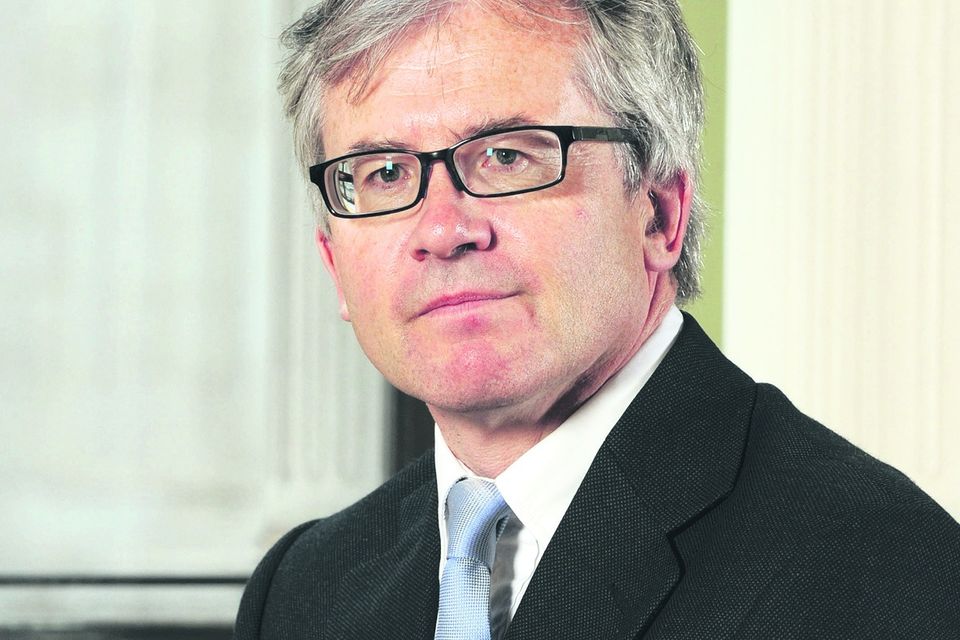Bank of England economist predicts end to squeeze on household incomes
A member of the Bank of England's monetary policy committee has said the squeeze on household incomes of the last four years could soon be over.
Economist David Miles, a professor at Imperial College in London and MPC member for the past four years, spoke to the Belfast Telegraph on a tour of Belfast and Co Antrim, where he discussed the economy with a number of companies.
The policymaker said the UK economy had seen "extremely sharp recession and pretty anaemic recovery" but that gradual fluctuations in inflation to the present 2.8% rate were bringing it closer to the Bank's 2% target.
Inflation had spiked at around 5% in September 2011 – due to an increase in Vat to 20% and the impact of increasing commodity prices, Mr Miles said.
Mr Miles, who has consistently advocated quantitative easing as an economy-boosting measure, said: "We are now back to slightly under 3% and I think it will hover around this level for a good part of this year – but it's more likely than not that as we go into next year, inflation will be quite close to 2%."
He said he was hearing "diverse views" from the companies he had visited on this month's trip – a regular for MPC members, whose visits to UK regions are intended to give them a rounded view of economic conditions.
"The situation in Northern Ireland remains a difficult one and in many ways rather similar to across much of UK," he said.
"Household incomes have been squeezed in a period where those people lucky enough to keep a job have seen their pay either frozen or going up by only 1% a year.
"With inflation at 4% or as much as 5%, that's put a big squeeze on incomes, which has an impact on consumer spending, making life difficult."
There was a "fair degree of optimism" in some sectors but stories of a strain on household disposable income were common.
"That's been very significant, not just in Northern Ireland but right across the UK. We have had for several years average levels of wages lagging behind the inflation rate and that's true, not just for short periods of time like six months or a year, but probably for four years now – and that's very unusual," Mr Miles said. But he added: "One of the reasons why we might be what you might call guardedly optimistic about the future would be that I think this period of substantial squeeze on people's disposable income is likely to be largely behind us.
"No one can say for sure because there are things that can happen like an increase in oil prices – but our central assessment in the Bank is that across the UK on average we might see price increases much closer to that 2% level over the next few years.
"Therefore if wage settlements just stay at their current level at least people's disposable income won't be falling significantly year on year, which is what we have been seeing."
The Welsh native is currently the only non-English-born member of the MPC – but that will change when the Bank's incoming governor Mark Carney, currently governor of the Bank of Canada, takes over from Sir Mervyn King.
The arrival of Mr Carney in July would not change the nature, structure or formalities of meetings and the aim of keeping to the 2% target would remain, Mr Miles said.
"Mark Carney does bring a lot of experience as a central bank governor of a major central bank already, but his economy has a different structure and he will bring a different perspective."The situation in Northern Ireland remains a difficult one and in many ways similar to across much of the UK
Join the Belfast Telegraph WhatsApp channel
Stay up to date with some of Northern Ireland's biggest stories

